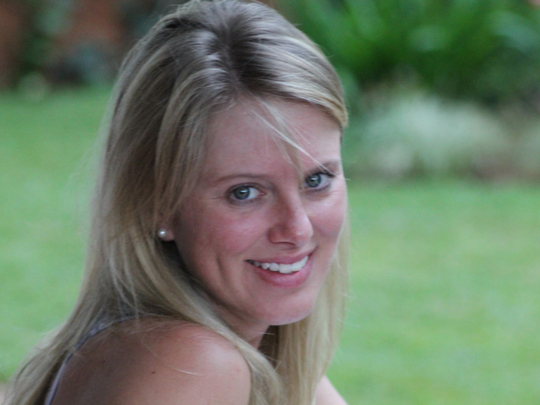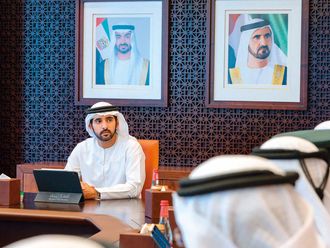
Dubai: A South Africa-licensed biokineticist is no closer to officially practising her profession in Dubai than she was when she started the application process two years ago.
After a mountain of paperwork and making several appearances before officials to confirm her status as a biokineticist, Kristy Delport-Doran, 31, was asked by the Dubai Health Authority to sit for a a test.
The DHA says that it does not have a classication for biokinetics but did test Delport-Doran who didn’t make the grade.
The impasse centres on defining precisely what the role of a biokineticist entails.
South Africa is one of the few countries offering a degree in the science of human movement and, according to the Biokineticists Association of South Africa (BASA), biokinetics is concerned with health promotion, the maintenance of physical abilities and final phase rehabilitation, by means of a scientifically based physical activity programme prescription.
In other countries, including Australia and the US, the degree will be in “exercise specialist” or “physical therapists”.
The problem is that the UAE has no such designation.
The Zimbabwe native, who enjoys many sports and is very active, then met an official at DHA, who “looked at the documents and gave me the approval to continue with the process [of getting a licence].” The decision was taken that she would fit under the rehabilitation category, and her application would come under Physiotherapy, Rehabilitation and Sports Therapy category.
Since her specialisation doesn’t exist, Kristy had to take an oral test, rather than the standard online test for other therapists.
During the March test, examiners asked questions of a “physiotherapy-oriented nature. The assessment had not touched on many sides of my speciality,” she said.
Nearly seven months later, she received an email informing her that she had failed.
Commenting on Kristy’s case, the spokesperson said the applicant failed the test given to her by “three professionals — one of whom is a physiotherapist and two who are physiotherapists as well as experts in sports therapy”.
“In the UAE, we do not have the title of a biokineticist and follow the title of a sports therapist instead. In Dubai, we receive applications from candidates across 110 countries who want to practise medicine in Dubai. We need to adopt titles which can fit the bill for most countries and is the most recognised,” the spokesperson said.
DHA, meanwhile, constantly updates its lists of medical disciplines, the spokesperson stressed.
“The last update was in 2014. We benchmark ourselves internationally and we are part of International Medical Regulatory Association (IMRA) so we update our standards and share knowledge on a regular basis.”
In Dubai, the number of expatriate health professional practitioners, including doctors, nurses and therapists, is estimated at 31,095. They include 767 physiotherapists, 14 osteopaths, and 25 chiropractors.
However, the list has no biokineticists.
Kristy is undecided as to what she will do in the near future, especially given that she is pregnant.
She can either continue her attempts to get a licence in order to be allowed to work in any facility under the DHA authority, or take extra workshops and become an exercise trainer at a sports centre and use her education as a background.
“I’m not interested in being a personal trainer and working with people who are healthy already,” she said, adding she wants to help people who have problems and are seeking to improve these and exercise can be the drug/therapy to help them.”
According to Kristy, biokinetics is a wide field where high-performance athletes and patients with different illnesses — including orthopedic injuries, or strokes, or Parkinson’s, or diabetes and even cancer patients — would benefit. Certain exercises tailored for individuals are actually part of being a biokineticist, she said.
Asked about obstacles facing biokineticists in being recognised in some other countries, Dr Gerda Joubert, President of Biokineticists Association of South Africa, explained in an email interview to Gulf News that “South Africa is the only country offering biokineticists and the name is own to the profession in SA. Each country will have their own rules and regulation under which a biokineticist will be employed. Those you will have to get from different countries but an entrance exam might be needed to be written to practise in another country.”
Kristy’s attempt to get a licence to practice her profession in Dubai is not her first encounter.
In 2009, when she returned to her home country, she faced challenges.
“Because the medical disciplines were small in Zimbabwe and a lot of specialities don’t exist, a lot of people go to South Africa, where there were many recommendations for them to see a biokineticist,” she said.
She made sure to spread the word of her presence in Zimbabwe to both specialists in South Africa and medical facilities at home.
By 2011, she established her own business and started receiving people in need of rehabilitation.
Today, there are already four biokineticists working in Zimbabwe, and Kristy said she has been contacted by many of her colleagues in the profession to see if they can work legally in Dubai.












